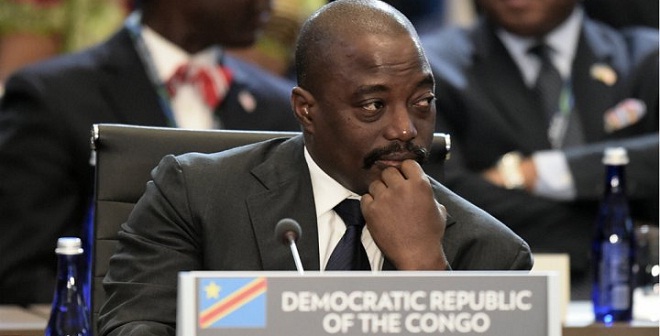
Kinshasa, DR Congo | AFP | Authorities in the Democratic Republic of Congo met on Saturday to address when the next presidential election will be held after the country’s electoral commission announced there will be no vote before early 2019.
Beset by ethnic divisions, numerous political tensions and bloody fighting in its east, the delay has raised fresh security worries in the vast African nation.
Elections were supposed to occur this year under a transitional deal aimed at avoiding fresh political bloodshed after President Joseph Kabila refused to step down when his second and final term ended in December 2016.
A new timetable for the election will not be announced at the end of the three-way meeting between the government, the Independent National Electoral Commission (CENI) and the National Monitoring Council of the Agreement (CNSA), the commission’s rapporteur told AFP.
“On Wednesday we will end the meeting and the electoral commission will tell you when it will publish the timetable,” said rapporteur Jean-Pierre Kambala.
He said it could be a matter of days before a timetable is made public. For weeks Congolese officials have been saying that a timetable announcement is imminent.
The international community has strongly urged that the timetable be released, with the United Nations saying the silence has created “tensions and a climate of uncertainty”.
The electoral commission said Wednesday it would need another 504 days to prepare for the vote after the completion of an electoral census, which is far from done in the restive Kasai region.
“We need 1.335 billion dollars (1.129 billion euros), including $400 million for revising the register,” Kambala told AFP.
The opposition “Rassemblement” (Unity) coalition boycotted the three-way meeting launched by Prime Minister Bruno Tshibala.
Opposition leader Felix Tshisekedi said on Thursday that Kabila and the electoral commission had “declared war on the Congolese people” by delaying elections until 2019.
The 2017 election deadline was set by a hard-won accord brokered by the Catholic Church on last New Year’s Eve, and supporters hoped it would usher in the chance of a violence-free, democratic transition in one of the world’s most restive countries.
 The Independent Uganda: You get the Truth we Pay the Price
The Independent Uganda: You get the Truth we Pay the Price



